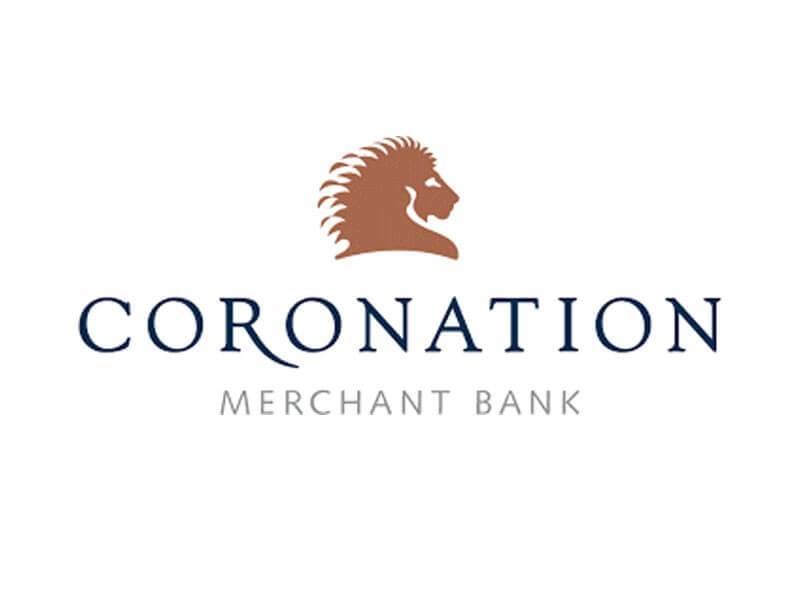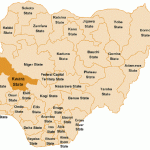Banking
AMCON Acquires N3.7tr Bad Loans from Banks

**Pumps N2.2tr into 10 Banks
By Dipo Olowookere
Over 12,000 Non-Performing Loans (NPLs) from 22 banks worth N3.7 trillion have been acquired so far by the Asset Management Corporation of Nigeria (AMCON), Business Journal is reporting.
AMCON was created by Federal Government to be a key stabilizing and re-vitalizing tool aimed at resolving the non-performing loan assets.
According to the report, the sum of N2.2 trillion has been injected as financial accommodation to 10 commercial banks in order to prevent systemic failure in the banking sector. This has contributed in stabilising the financial system in Nigeria.
Records from AMCON also indicate that about N3.66 trillion of depositors’ funds were protected since the creation of the corporation during the 2008/2009 financial crisis while approximately 14,000 jobs were saved as a result of AMCON’s intervention in the banking sector.
Meanwhile, leading legal luminaries including the former Chief Judge of the Federal High Court, Justice I. N. Auta and the President of Court of Appeal, Justice Zainab Adamu Bulkachuwa have joined the campaign by the management of AMCON) in calling for a paradigm shift in debt recovery processes in Nigeria.
Such shift according to them would act as act as panacea, if indeed the Corporation were to meet its mandate of resolving its huge outstanding obligation.
Current AMCON management under the leadership of its Managing Director/Chief Executive Officer, Mr Ahmed Kuru, upon assuming office and reviewing the challenges as well as bottlenecks inhibiting recoveries mounted a strong campaign that the current practice where habitual and recalcitrant debtors are treated with kid gloves, especially by agencies of government would not help AMCON resolve these loans before its sunset date.
According to Justice Auta, the approach to debt recovery and resolution must change at this point in the life of AMCON especially going into 2018 and beyond because the Corporation came as a child of necessity at the time it was created with all the good intentions in the world to recalibrate the beleaguered economy of the country at the time.
In his words, “Nigeria witnessed the 2007 global financial crisis, which was caused by insolvency, illiquidity, poor corporate governance and outright financial crimes.
“However, with the creation of AMCON by the federal government, no bank has been liquidated, depositors’ funds are safe and no bank has been subject to collection queues.
“The financial crisis led to the depression in value of the securities created against these defaulting loans thereby leaving the banks with an unfortunate inability to recover their losses.
“The effect of such monumental exposure was that banks were unable to sustain the equilibrium of lending required to maintain a vibrant economy.
“This in turn led to higher interest rates and an inability to perform the bank’s primary functions of financial intermediation like the pooling of savings and lending.”
Explaining further, he said, “In addition to significant reduction in lending to customers, financial crisis created by non-performing loans can result in breakdown of interbank lending, which in turn leads to drastic drop in liquidity of banks and a consequent reticence or direct inability to advance loans to the broader public.
“Collectively, these factors create a vicious cycle resulting in a hike in interest rates; concomitant default and insolvency; volatility of currency values; a drop in investments and general stagnation of the economy among other crisis.”
Justice Auta, having enumerated the facts, argued that it is extremely important for all stakeholders, especially Judges to note the correlation between bank failure, which AMCON saved, and a large concentration of non-performing loans.
He added that Judges have critical role to play in the insulation of the macro-economy from fragmentation since most disputes that relate to banking, which AMCON currently shoulders are presented before them.
Describing the AMCON framework as “extremely complex” he said AMCON’s goal can only be accomplished if all stakeholders, especially the entire hierarchy of the bench appreciates the fundamental underpinnings of its regime.
Lending her voice to Justice Auta’s position, Justice Bulkachuwa in her own analogy argued that since the rise of the financial sector is tied to economic growth, Nigeria’s economy, the livelihood and wellbeing of the citizenry are inextricably related to finance. She said all over the world, whenever the economy goes into crisis, governments across the world intervene to stabilise the macro-economy, which AMCON did in the case of Nigeria.
But with what she described as “deliberate reluctance” of debtors to redeem their obligations to AMCON, Justice Bulkachuwa said: “Having realised deliberate reluctance of debtors to redeem their obligations to AMCON, it would seem that AMCON has limited options other than resorting to our courts to enforce its enormous powers towards debt recovery. To recover as much debt as possible within its defined lifespan, expediency is essential if AMCON is to achieve its value maximization and financial stability goals.”
Corroborating the position of the two distinguished Justices, Mr Kuru submitted that AMCON is currently indebted to the CBN to the amount of N4.7 trillion, which is more than half of the proposed 2018 national budget.
Aside that, more than 70 per cent of AMCON’s Eligible Bank Asset (EBA), portfolio is also locked in one form of litigation or the other meaning that without the support of the judiciary, AMCON cannot see the light of day.
On the back of that, he said there is also a rising number of appeals emanating from trial courts on AMCON cases, adding that at this stage in AMCON’s existence, expeditious determination of appeals brought before the courts remains key to AMCON’s ability to resolve all outstanding assets and prevent the undesired economic consequences of failure to recover the assets. The inability to resolve the debt he argued would have dire implications for the entire Nigerian economy.
Banking
Coronation Merchant Bank Targets Top-Tier African Status in Next Growth Phase

By Adedapo Adesanya
Coronation Merchant Bank has set its sights on attaining top-tier status among African banks, leveraging a decade of operations and Nigeria’s ongoing economic reforms to drive its next phase of growth across key sectors.
Speaking at the Chairman’s Dinner held to commemorate the bank’s 10th anniversary in Lagos, the chief executive of the lender, Mr Paul Abiagam, said the institution had successfully carved out a distinct niche in Nigeria’s highly competitive financial services market despite a decade defined by economic volatility, policy shifts and macroeconomic uncertainty.
“Over the last 10 years, we have found our own space in a very tight market and built credible footprints in the specific markets we chose to serve,” Mr Abiagam said.
Describing the bank’s journey as “valiant” amid the changing economic landscape, he said the anniversary represents both a moment of gratitude to the bank’s founder, shareholders, board and partners, and a recommitment to scale new heights in the decade ahead.
Mr Abiagam attributed the bank’s resilience and steady growth to strong shareholder and board support, as well as a clear and disciplined corporate strategy.
He noted that Coronation Merchant Bank’s focus on defined target markets had enabled it to expand its footprint across key sectors of the economy while maintaining operational clarity.
Looking ahead, the CEO said ongoing reforms and the Federal Government’s ambition to build a $1 trillion economy present significant opportunities for financial institutions with the right expertise and positioning.
He identified infrastructure, construction, real estate, oil and gas, and manufacturing as priority sectors where the bank is already aligning its strategy.
“Volatility often comes with opportunity, What we see clearly is opportunity, and our strategy is to ensure we are well positioned to take advantage of it.” Mr Abiagam said.
Among the bank’s notable milestones, Mr Abiagam highlighted its international credit ratings, placing Coronation among a small group of internationally rated merchant banks in Nigeria.
He also pointed to human capital as a core strength, describing the bank’s people and talent as its greatest asset.
In his remarks, the Chairman of Coronation Merchant Bank, Mr Babatunde Folawiyo, reflected on the challenges of operating in Nigeria’s banking sector over the past decade, noting that the true measure of success lies in an institution’s ability to grow through uncertainty and emerge stronger.
“Anyone who has operated in Nigeria’s banking space over the last 10 years knows how challenging it has been,” Mr Folawiyo said, citing policy changes, macroeconomic shifts and leadership transitions. “The real test is whether you can grow through those challenges—and we have.”
Mr Folawiyo said recent reforms have introduced greater certainty into the economy, particularly in the foreign exchange market, which is critical for business planning and sustainable growth. While acknowledging that the adjustment period has been difficult, he stressed that predictability, even at higher exchange rates, is far more beneficial than extreme volatility.
“No business thrives without some level of stability. What hurts the economy most is wild and sudden swings. Predictability allows businesses to plan, adjust and grow,” he said.
On the outlook for the sector, Mr Folawiyo said Nigeria remains significantly underbanked, creating room for diverse players within the financial system. While technology and fintechs are expanding access to financial services, he emphasized the enduring role of specialized institutions such as merchant banks in serving corporate and structured finance needs.
“A corporate client structuring commercial papers or complex funding solutions needs more than a fintech app. It needs a bespoke, one-stop financial partner. That is where merchant banks like ours play a critical role,” the Chairman said.
He added that Coronation Merchant Bank’s strategy is anchored on long-term economic fundamentals rather than political cycles, noting that the current policy direction of the Central Bank and the Federal Government, though initially painful, aligns with sound economic principles.
“These are textbook reforms. There is no gain without pain, and we are already beginning to see the gains, not just in the financial sector but across the broader economy,” he added.
Banking
S&P Forecasts 25% Credit Growth for Nigerian Banks in 2026

By Adedapo Adesanya
Nigerian banks are expected to post stronger credit growth of up to 25 per cent in 2026 while retaining positive profitability, according to a new outlook by S&P Global Ratings.
In its Nigerian Banking Outlook 2026, S&P said improved lending to key sectors of the economy alongside resilient non-interest income would help banks absorb the impact of regulatory headwinds and easing interest rates.
The ratings agency projected credit growth of between 20 and 25 per cent in 2026, driven largely by increased investments in oil and gas, agriculture and manufacturing.
It added that the outlook for lending was supported by expectations of moderating inflation and gradual monetary easing, following recent interest rate cuts by the Central Bank of Nigeria (CBN).
“We expect credit growth of about 20-25 per cent supported by investments in the oil and gas, agriculture, and manufacturing sectors. Although interest rates have started to decrease, profitability should stay resilient in 2026, supported by growth in non-interest income (NII) and lower provisions.
“We expect Nigerian banks to prove resilient and capable of preserving their profitability in 2026,” S&P said, noting that earnings would be supported by transaction driven fees, commissions and a still elevated cost of risk, even as margins come under pressure.
The ratings agency noted further that it expects nominal lending growth to remain high at about 25 per cent, supported largely by investments in the oil and gas sector, agriculture and manufacturing.
S&P said Nigerian banks would continue to benefit from rates that remain high relative to peers, supporting net interest margins while interest rates are expected to decline further in 2026.
“Although interest rates have started to decline, we expect rates to remain high relative to peers, which will continue to support banks’ net interest margins through 2026.
“We forecast the average return on equity (ROE) will normalise at 20-23 per cent in 2026 compared to 25 per cent estimated for 2025, while return on assets will decline marginally to 3.0-3.1 per cent from an estimated 3.3 per cent in 2025. Profitability will be supported by still high interest margins, growing NII, and slightly lower provisions, while capital issuance will increase the equity base leading to a lower ROE.
“Although interest rates have started to decline, we expect rates to be high relative to peers, which will continue to support the banks’ net interest margins through 2026. We forecast an average margin drop of about 50bps to 100bps in 2026, as banks’ margins will continue to benefit from higher yields on government securities and large recourse to low-cost customer deposits.”
Banking
CBN Targets Reforms to Ease Compliance Burdens on Fintech Firms

By Aduragbemi Omiyale
To ease regulatory compliance burdens on financial technology (fintech) companies, the Central Bank of Nigeria (CBN) is considering some strategic reforms through a policy known as the Single Regulatory Window.
In its 2025 Fintech Report, the central bank said this scheme will significantly reduce time-to-market for new digital financial products by streamlining licensing and supervisory processes across multiple agencies.
The CBN said there would be a shared regulatory infrastructure in form of a Compliance-as-a-Service model to cut down duplicative reporting, ease the burden on regulated fintechs, and enhance supervisory visibility.
The apex bank said it came up with this idea after being aware of some challenges stakeholders, especially operators, go through in the ecosystem.
The bank said fintech firms remain a critical leg in its financial inclusion drive in Nigeria and must be supported to expand their operations to achieve the goal.
The CBN report showed that 62.5 per cent of fintech firms lamented how regulatory timelines materially affect product rollouts, while over one-third noted that it takes more than 12 months to bring a new product to market, largely due to compliance bottlenecks.
“Stakeholders cited delays in approvals and ambiguity in regulatory guidelines as their most pressing concerns,” a part of the report disclosed.
The report recommended “exploring models for a Single Regulatory Window to simplify multi-agency compliance processes and reduce time-to-market.”
It was also suggested that to address the issues, the bank must review “approval timelines and operational guidelines.”
In addition, the central bank was advised to either review the PSB framework or introduce a dedicated digital banking licence that would enable inclusive lending under stronger prudential oversight.
“A dedicated digital bank licence may be a more effective pathway for inclusive lending than expanding the PSB mandate,” the respondents suggested.
As for digital assets, the CBN signalled a shift towards a more nuanced regulatory framework for cryptocurrency, balancing innovation with financial integrity rather than imposing blanket restrictions, as fintechs acknowledged crypto’s potential to drive cost-effective cross-border transactions and strengthen remittance channels, while also warning of risks linked to illicit flows and consumer protection.
“There was broad agreement on the need for a risk-based, activity-focused regulatory framework,” the report stated, adding that regulators must avoid equating all crypto activity with criminality, especially as many scams originate offshore.
-

 Feature/OPED6 years ago
Feature/OPED6 years agoDavos was Different this year
-
Travel/Tourism9 years ago
Lagos Seals Western Lodge Hotel In Ikorodu
-

 Showbiz3 years ago
Showbiz3 years agoEstranged Lover Releases Videos of Empress Njamah Bathing
-

 Banking8 years ago
Banking8 years agoSort Codes of GTBank Branches in Nigeria
-

 Economy3 years ago
Economy3 years agoSubsidy Removal: CNG at N130 Per Litre Cheaper Than Petrol—IPMAN
-

 Banking3 years ago
Banking3 years agoSort Codes of UBA Branches in Nigeria
-

 Banking3 years ago
Banking3 years agoFirst Bank Announces Planned Downtime
-

 Sports3 years ago
Sports3 years agoHighest Paid Nigerian Footballer – How Much Do Nigerian Footballers Earn



















